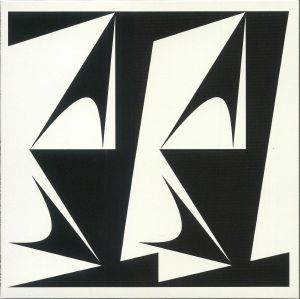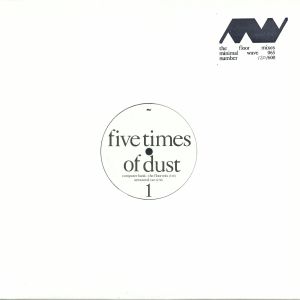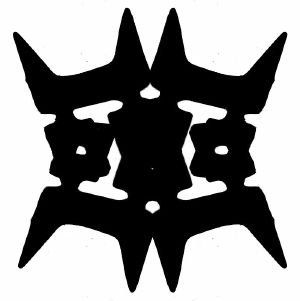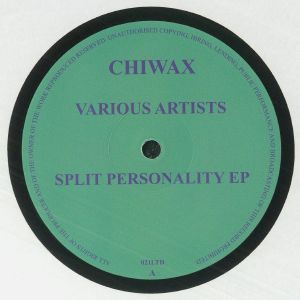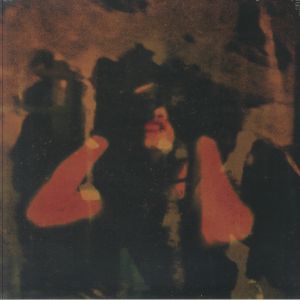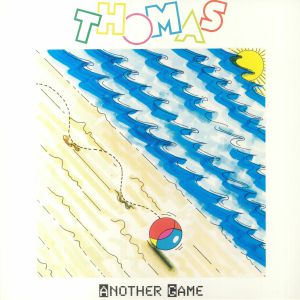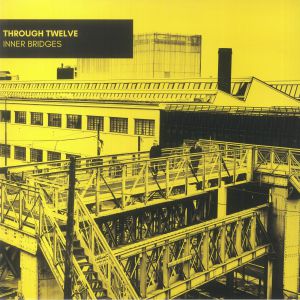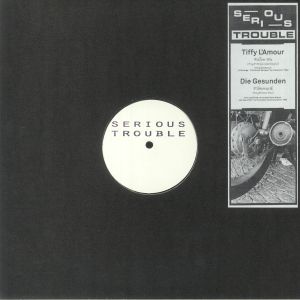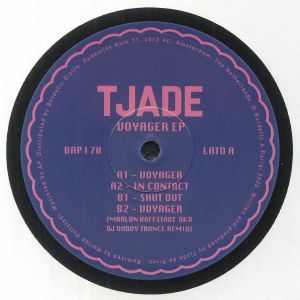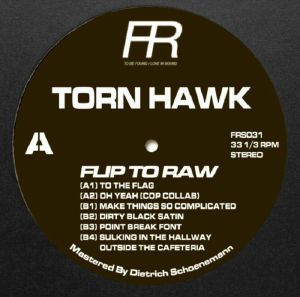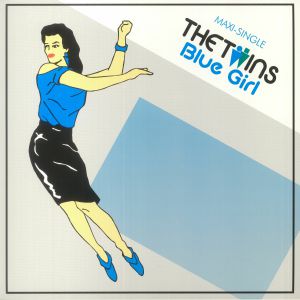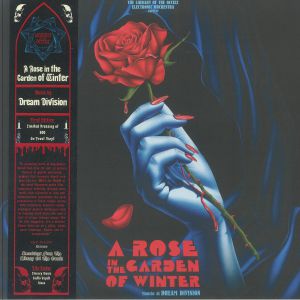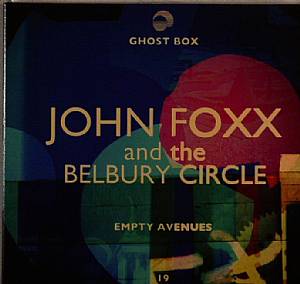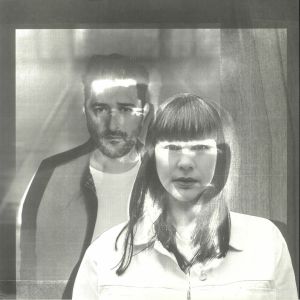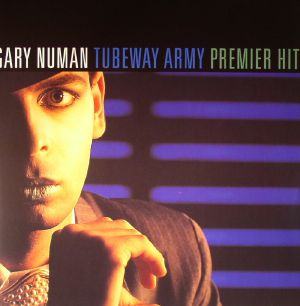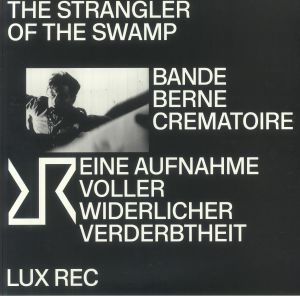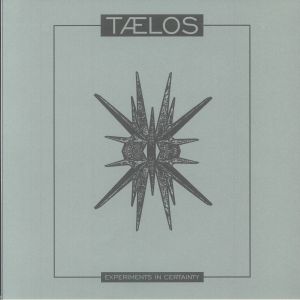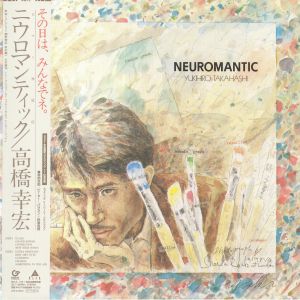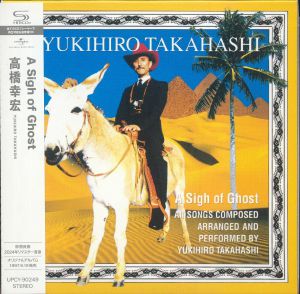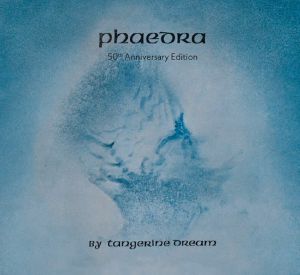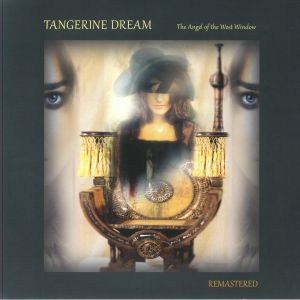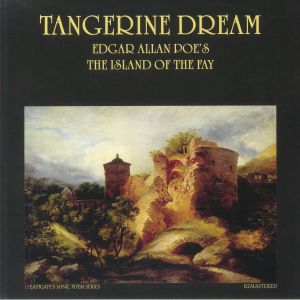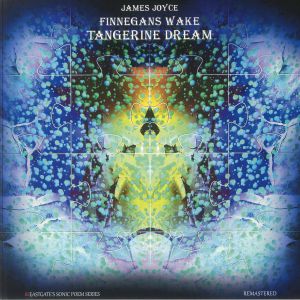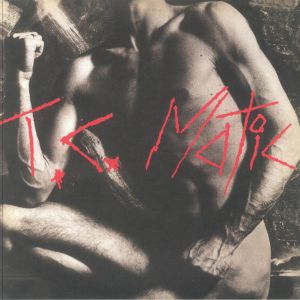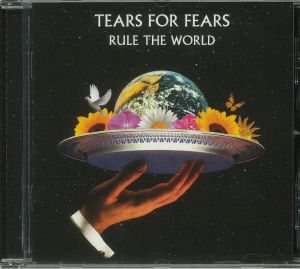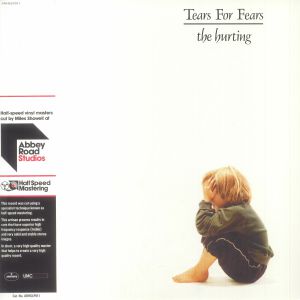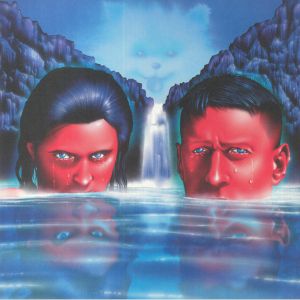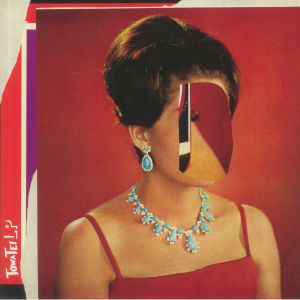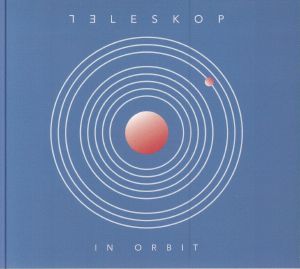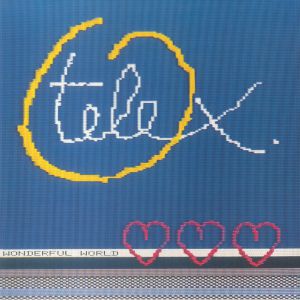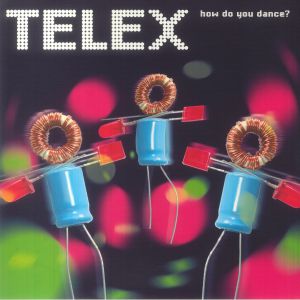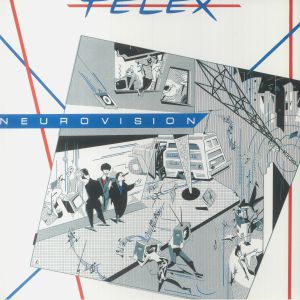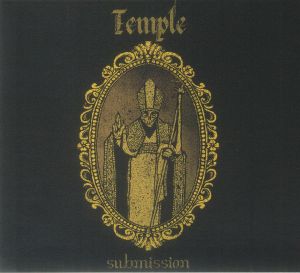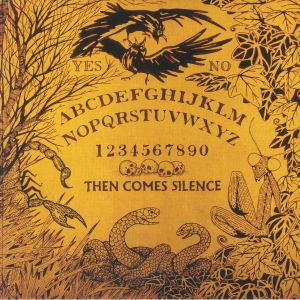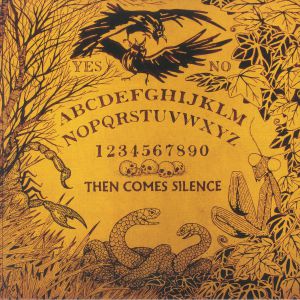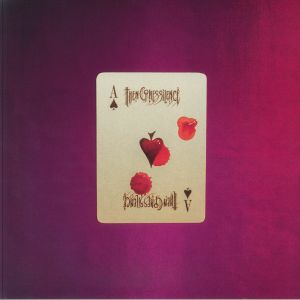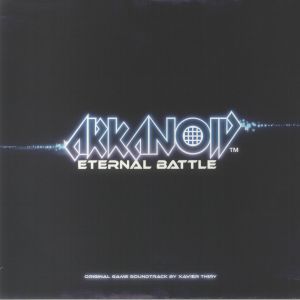Filter
Stock
Featured
Release Title
Price
Tags
Back catalogue: Coldwave/Synth
Juno's full catalogue of Coldwave/Synth
Singles
Review: Ahead of an oncoming Tbilisi party set to be thrown by the Sameheads crew, their latest 7" appears ahead of time as the latest offering by fellow friends, Andrea & Alexander. With just 300 copies available, this dreamy duo share a juxtaposed space with a more esoteric, gritty B-side, occupied by TINA's 'Vacation', which breaks from the usual Sameheads sound, almost entirely, to indulge a massively wonky inhumation. The A's own 'Olias', by contrast, is light and sixteen-thy, dotting along with detuned Italo saws and descending cadences of relief. Once performed live at the fabled Sameheads festival, City Of A Thousand Suns, the label here celebrate its recorded version for the world to hear on repeat.
… Read morePlayed by: Alexis Le-Tan
in stock $21.95
Cat: ATH 158. Rel: 27 Jul 23
Review: The story of this one revolves around San Diego native Anthony "Antone" Williams. He was one day alone in a studio, messing about with the gear and before he knew he it lay down the haunting rhythm that underpins the tune now presented here by the good folks at Athens of the North. It's a sinister, restless one that got released as a hugely limited 7" on Unity Records with otherworldly soul production and a pained vocal up top. Post punk soul, some call it, and that's a fitting descriptor. A remix appears on the flip but the allure of the original is hard to beat.
… Read morePlayed by: Juno Recommends Leftfield, Voodoos And Taboos
in stock $9.33
The Floor Mixes (limited hand-numbered blue vinyl 12" in hand-stamped sleeve)
Cat: MW 065. Rel: 19 Dec 17
Review: Thanks to the eternally revered Minimal Wave imprint, out of NYC, Mark Phillips and Robert Lawrence's Five Times Of Dust project is going through a bit of a revival. The duo had first released some post-punk cassettes back in the 80s, and they clearly have not been forgotten. On this new remix EP, "Computer Bank" is given a makeover in the form of a The Floor remix, who proceeds to add all sorts of quirkiness over the tune's tough, heavy bass and driving rhythm; "Armoured Car" breaks the 4/4 in favour of something much closer to the band's original drum machine style. Once again, on the flip, we have a remix of "Like I Am, Comme Je Suis" by The Floor, who throws up a gnarly electro bass onto shady, neo-romantic vocals, and the whole things is finished off by "Imponative" from Unovodual and Tara Cross, who produce a slow, heady industrial groove for the dancefloor.
… Read morePlayed by: Alexis Le-Tan, Dj soFa
in stock $21.41
Noho EP: Turning The Crank (12" limited to 300 copies)
Cat: ZAM 025. Rel: 23 May 24
Played by: DJ Mau Mau
in stock $20.04
in stock $8.81
in stock $23.89
Review: Towa Tei is best known for his membership of the influential house music troupe Deee-Lite, the legacy of which has helped sustain a prolific solo career. Now comes the two fresh bits 'Ear Candy' and 'Muse'. Channelling the aesthetic spirit of Tei's many collaborators and influenecs - that of singer and drummer Yukihiro Takahashi, once a member of the legendary techno-pop band Yellow Magic Orchestra, and the artist Yayoi Kusama - we get something between broken beat, electro-funk, and downtempo dadaist electronica as the result, as we are implored to "bring that funky music", an impulse almost certainly as addictive as the sugary highs elicited from actual candy.
… Read more in stock $18.12
in stock $23.04
in stock $13.23
in stock $18.12
Review: Since making his debut in 2019 via 'Koi Jaye' - a stunning edit of a little-known Punjabi take on throbbing, Moroder inspired electronic disco - Tjade has delivered a handful of 'must-check' releases that showcase the growing quality of his throbbing, Italo and Hi-NRG-influenced original. The Voyager EP, his latest effort, may well be his strongest collection of cuts to date. For proof, check 'Voyager', a kaleidoscopic, synth-heavy stomper that channels the spirt of Hi-NRG and early trance and comes backed with a stomping techno-trance rework courtesy of Marlon Hoffstadt AKA DJ Trance. Elsewhere, 'Shut Out' sees him add 90s trance style melodies and synth sounds to a punchy breakbeat groove, while 'In Contact' is a throbbing Hi-NRG workout blessed with deliciously cheery electronic lead lines.
… Read more in stock $15.10
The Art Of Romantic Beings (translucent red vinyl 12" + insert)
Cat: DSEN 002. Rel: 01 Aug 24
Review: Desencanto is carving out its own sound world with its first releases and this one again taps into a loved-up deep house vibe that puts beautiful melodies and serene moods front and centre. 'Pipina' kicks off in the form of an Acqua mix that is downbeat and blissed out. 'Miss U Too' then brings some retro 80s synth work and taught basslines under celestial keys. 'Temptation' has more glassy melodies making for a rather haunting and eerie mood and finally, 'Last Kiss' is a suspenseful ambient soundscape that floats you up amongst the stars with reverential flutes encouraging nostalgic dreams.
… Read morePlayed by: Marcelo Tavares(Deep Space Podcast)
in stock $16.46
Review: Luke Wyatt's Torn Hawk project has always been hard to pigeonhole, with the American producer frequently combining admirable experimental instincts and a love for dusty, distorted sounds with a desire to foreground melody and associated musical niceness. Both sides of his musical personality combine on this six-track EP for Fixed Rhythms. The highlight - for us at least - is the surf guitar solo-laden moody epic 'Oh Yeah (Cop Collab)', where waves of gritty, psychedelic and weirdo noises rise above dense sonic textures and rolling beats. That said, there's plenty to set the pulse racing elsewhere across the EP, including the outstanding-fi workout 'Make Things So Complicated', the dubbed-out beat science of 'Dirty Black Satin' and the experimental breakbeat madness of 'Sulking In The Hallway Outside The Cafeteria'.
… Read morePlayed by: Juno Recommends Downtempo, Mr G
in stock $15.92
Jede Nacht Derselbe Traum (hand-numbered translucent green vinyl 12" limited to 200 copies)
Cat: EDGE 021G. Rel: 17 Oct 23
Review: The Outer Edge reckons that this first release on their label is one of "the rarest and simultaneously best-recorded independently released German new wave singles in history." Bold words, but probably not far wrong. 80s outfit Total wrote it as the first and title single for an album deal they signed. It's a killer cut with hints of 'The Message''s hip-hop rhythm and alluring female vocals over a lush bassline from the Jupiter 8 keyboard and DMX drum machine funk driving it along at such an inviting mid-tempo. The withering cosmic keys add extra spacey goodness and here it comes with a couple of alternative mixes, though the OG is really the one.
… Read more in stock $21.41
in stock $22.78
Played by: Piers Harrison
in stock $28.00
in stock $26.34
Albums
Cat: DCM 014. Rel: 10 Jan 25
Review: Yugoslavia went through unthinkable turmoil during the break up of the Soviet Union, which is why it is all the more astounding even all these years on that it had quite such a fertile and innovative music scene. In 1984, Zoran Jevtic and Zoran Vracevic were a key part of it and helped revolutionise the sound of the day by introducing synth-pop, breakbeat and hip-hop with their Data and The Master Scratch Band projects. Their releases paved the way for modern electronic sounds and this album dives deep into that era and compiles their earliest unreleased works from between 1981 and 1983. It's a daring exploration of genres including industrial, EBM, minimal synth and electro-funk. It adds up to a true digger's gem that will significantly elevate your vinyl-hunting credentials without having to do the hard work yourself.
… Read more in stock $30.74
A Rose In The Garden Of Winter (limited frost blue vinyl LP with obi-strip)
Cat: LOTO 035. Rel: 07 Oct 24
Review: Dream Division present their latest album Rose In The Garden Of Winter, a contemporary gothic disco undertaking of polished and still genre-various proportions. Echoing the stylistic ambitions of Bauhaus, but perhaps describably updating their sound for the modern ear, Dream Division offer a metamorphic record, able to shapeshift into a range of chiropteran forms: cinematic punk, dub, goth-disco, lounge, even interluding raga. Impressively, the personnel list on this record make up an intricate human nonagram, through the central vector on this ritual star is Tom McDowell, who handles synths, vocoder, production and songwriting and commands a puppeteer's control over various synthesists, sitar caressers and theremin cooers. Delightfully devilish throughout, A Rose... reminds of something between a lycanthropic, late 70s Mancunian punk blowout and a fanged Italo-disco bashment in which the sprinklers sprinkle blood on sight of a daywalker.
… Read more in stock $26.90
in stock $6.86
Third Album (180 gram vinyl 2xLP + insert)
Cat: NBLP 003. Rel: 20 Oct 22
Review: As one of the iconic partnerships from the electroclash era, Miss Kittin & The Hacker helped define seedy synth tackle at the turn of the century. Given the prevalence of minimal wave in this day and age, it feels like the perfect time for them to come back with a new album. Teetering between pop nous and the darkest of deviant nighttime dreams, this is everything you would want from a return of the Grenoble greats. Listening to 'Purist' and they could easily be taking on the charts, while a trip into 'La Cave' is like donning your finest leathers and sliding into the dungeon.
… Read morePlayed by: Juno Recommends Electro, Rave Energy
! low stock $27.72
Played by: Juno Recommends Experimental
in stock $23.33
Eine Aufnahme Voller Widerlicher Verderbtheit (3xLP + poster)
Cat: LXRC 50. Rel: 20 Feb 25
Review: Born and raised in Bern, Switzerland, Michael Antener spent most of the 1980s concerned with interpreting the subconsciously and overtly apocalyptic discourse of that time through the medium of industrial-edged, dark feeling music. "I found a niche where I could express myself, along with other people who were not afraid of dark themes," he's quoted as saying in retrospect, before going on to explain that singing about love would have been more difficult than using "cries of pain taken from horror movies". This triple vinyl collector's item celebrates that fertile, if angry and dystopian period in Antener's life. Bringing together work from two of his formative projects, The Stranger of the Swamp and Bande Berne Crematoire, what's here is captivating. Electroclash with groove, distressed collages of noise, a certain sense of sonic expressionism - all brooding shadows, menacing arrangements and deeply unsettling moods.
… Read more in stock $38.42
Experiments In Certainty (numbered lathe cut 2xLP limited to 50 copies)
Cat: ININFACT 054. Rel: 30 Jan 25
in stock $43.91
in stock $39.25
A Sigh Of Ghost (reissue) (SHM-CD with obi-strip)
Cat: UPCY 90249. Rel: 05 Apr 24
in stock $28.83
Tomorrow's Just Another Day (reissue) (B-STOCK) (LP + insert with obi-strip)
Cat: MHJL 205 (B-STOCK). Rel: 01 Jan 90
B-STOCK: Sleeve damaged but otherwise in excellent condition
in stock $26.35
Phaedra (50th Anniversary Edition) (5xCD + Blu-ray (no sound files available))
Cat: 658132 0. Rel: 17 Apr 25
Phaedra (CD1: Phaedra)
Mysterious Semblance At The Strand Of Nightmares
Moments Of A Visionary
Sequent C
Phaedra (Steven Wilson Stereo mix)
Sequent C (Steven Wilson Stereo mix)
2nd Day (CD2: November 1973 Phaedra Out-takes Volume 1)
Flute Organ Piece
Phaedra Out-Take Version 2A
Phaedra Out-Take 1 (CD3: November 1973 Phaedra Out-takes Volume 2)
Phaedra Out-Take 2B
2nd Side Piece 1
2nd Side Piece 2
Organ Piece
The Victoria Palace Concert (CD4: live At The Victoria Palace Theatre, London 16th June 1974 - part 1)
The Victoria Palace Concert (CD5: live At The Victoria Palace Theatre, London 16th June 1974 - part 2)
The Victoria Palace Concert - Encore
Phaedra (Blu-ray: Phaedra 5.1 Surround Sound mix By Steven Wilson)
Mysterious Semblance At The Strand Of Nightmares
Moments Of A Visionary
Sequent C
Review: Phaedra is the fifth studio album by German electronic group Tangerine Dream, recorded in November 1973 at The Manor in Shipton-on-Cherwell, England, and released in 1974 through Virgin. An icier, tempoless departure for a band otherwise better recognised for their sequencer-led, soundtrack-bred sound, this was a hidden moulin for frost-drone fanatics, and a deviant pupil of the otherwise strict Berlin School. Despite receiving little to no airplay, Phaedra gained significant traction through word of mouth when it was released by a rather more hippified Richard Branson's fledgling Virgin label, eventually reaching number 15 on the UK Albums Chart and remaining on the charts for 15 weeks. Its long-form pieces, such as 'Sequent C' and 'Mysterious Semblance At The Strand Of Nightmares', represent an indifference to constraints of timing, instead washing over the ears as diachronic, swirling, crisp ice ambient smirrs.
… Read more in stock $59.27
The Angel Of The West Window (gatefold 2xLP (side 4 etched))
Cat: KSCOPE 1226. Rel: 04 Jul 24
Review: This new reissue of The Angel From The West Window by Tangerine Dream's showed the returned back to their electronic music roots in 2011. Departing from the mellower tones that characterized some of their 90s output, the band's latest album at the time delved into more challenging and orchestral electronic landscapes. The Angel of the West Window, inspired by the works of German author Gustav Meyrink, showcases a revitalised sound: pulsating sequencers, expansive synthesized textures, and evocative electric guitar solos dominate the album. Collaborating with Thorsten Quaeschning, Froese infuses the tracks with dynamic rhythmic foundations and ethereal electronic layers, creating an edgy and immersive sonic experience. Electric violin accents add a haunting depth to the compositions, enhancing their atmospheric quality. Standout tracks like 'The Mysterious Gift to Mankind' and 'Living in Eternity' highlight Tangerine Dream's ability to blend synthetic and organic elements seamlessly. The album's thematic richness and sensitive melodies evoke a cinematic scope, making it ideal for both introspective listening and atmospheric settings. Long-time fans have welcomed this resurgence, celebrating Tangerine Dream's return to form and their enduring influence on electronic music. Tangerine Dream's musical legacy and innovative spirit is part of electronic music history. Fans of their Virgin records output should really enjoy this album.
… Read morePlayed by: Juno Recommends Experimental
in stock $37.60
Edgar Allan Poe's The Island Of The Fay (remastered) (gatefold 2xLP (side 4 etched) + insert)
Cat: KSCOPE 1225. Rel: 07 Nov 24
in stock $37.60
Finnegans Wake (limited gatefold 2xLP (side 4 etched))
Cat: KSCOPE 1227. Rel: 12 Sep 24
Review: If you're trying to work out where in Tangerine Dream's back catalogue Finnegans Wake fits, then good luck. According to our sources, this is "roughly the group's 125th release". So it's remarkable just how fresh and forward thinking the record sounds, given most people start running out of original ideas once they reach adulthood, let alone make it past the first two LPs. First released in 2011, eight tracks launch us towards the stratosphere on a rocket of synths and electric guitars, chords soaring ever higher as the background symphony of glitter and chime invoke images of stardust falling over an ocean of zodiacal light below. If that's too conceptual, then let's just say this is progressive kosmische Kraut at its most epic and bold. Just like the rest of their output, then.
… Read more in stock $31.29
TC Matic (Record Store Day RSD 2025) (limited numbered 180 gram audiophile translucent red vinyl 2xLP)
Cat: MOVLP 3840RSD. Rel: 19 Apr 25
in stock $38.71
in stock $8.23
The Seeds Of Love (reissue) (gatefold LP + MP3 download code)
Cat: 477071 6. Rel: 09 Oct 20
in stock $26.34
The Hurting (half speed remastered) (LP with obi-strip)
Cat: ARHSLP 11. Rel: 08 Jun 23
Review: Tears For Fears' debut album was titled The Hurting and we now gather it has turned 40, spurring the release of this reissue. Despite its dark themes of childhood trauma, emotional repression and primal screaming theapy, the album peaked at number one, ascending to the status of a template-cutter for all the synth-pop and new wave to come thereafter - and proving that the dance music loving masses perhaps weren't so emotionally repressed ater all. The Hurting still features some of the band's most memorable tracks, such as 'Mad World', 'Pale Shelter' and 'Change'. This special edition has been remastered at half speed for optimal clarity; a treat for the audiophiles who've moved past the arena and into the living room.
… Read more in stock $28.27
The Language Of Machines 1985-1991 (gatefold 2xLP)
Cat: MEC 090. Rel: 24 May 24
in stock $39.25
in stock $20.59
LP (limited translucent orange vinyl LP + booklet)
Cat: WRWTFWW 064. Rel: 14 Mar 22
Played by: Juno Recommends Broken Beat Nu Jazz
in stock $26.90
in stock $26.63
in stock $15.92
in stock $7.68
Review: In some ways it's remarkable that Telex managed to achieve the level of global success they did. This isn't slight on the band or indeed their sound, but to simultaneously make groundbreaking noises and garner widespread mass appeal has never been that easy, save for a number of high profile names we often now consider doyens of the music world. Looney Tunes, the group's fifth album, arrived in 1988 and by this point they had already been inducted into the synth pop hall of fame. Output and activity slowing considerably as the decade progressed, just like their sixth and final outing How Do You Dance?, released in 2006, here was proof that their vitality and ability to make ground breaking things had not waned, while their understanding of hooks and immediate impact had only grown more polished and absolute.
.
… Read more.
in stock $15.65
Played by: DJ ROCCA
in stock $15.65
Review: Formed in 1978, Marc Moullin, Dan Lacksman, and Michael Moers broke the mould with Telex - one of the most influential Belgian synth-pop groups of all time. Calling on disco, punk, and the sound of formative era experimental electronic music that was beginning to take hold in Western Europe, they would simultaneously produce some of the most important tracks of the genre until their first disbandment in 2006, and bless us with hilarious pithiness in the shape of tunes like 'Euro-Vision', a bleep-driven 'critique' of the song contest. How Do You Dance? was the group's final studio album, rounding out a six-strong, decade-spanning LP back catalogue, and despite arriving almost three decades after their debut, Looking for Saint Tropez, turned heads for its originality, this beauty still proved they were more than capable of delivering innovative goods. One for fans of Metronomy, Todd Terje and more.
… Read more in stock $15.65
Review: Known for their cover versions - having re-read Sly Stone, Plastic Bertrand, Les Chats Sauvages, and many more over the years - Telex managed to tread a fine line between comedy and innovation. Focusing heavily on a lo-fi synthesised sound, the Belgian alt-poppers would use plenty of humour in their work, but never allowed this to outshine or overshadow the musicality of it all. Released in 1980, Neurovision is a case in point. According to the band, this was their tongue-in-cheek entry to the Eurovision Song Contest, for which they were chosen as representatives for their home country in the same year. Deliberately banal lyrics, mostly referring to the competition itself, married to the glittering wonder of a proto-electronic soundtrack, mark it as a work of bold daring and a little genius. Sadly, it failed to secure them last place in the tournament, as they hoped, forcing them to settle for 17 out of 19.
… Read morePlayed by: Marco Febbraro
in stock $15.65
in stock $26.07
in stock $27.18
in stock $30.20
in stock $25.80
Arkanoid Eternal Battle (Soundtrack) (limited translucent blue vinyl LP)
Cat: 370162 7800017. Rel: 28 Jul 23
in stock $20.79

 USD
USD





